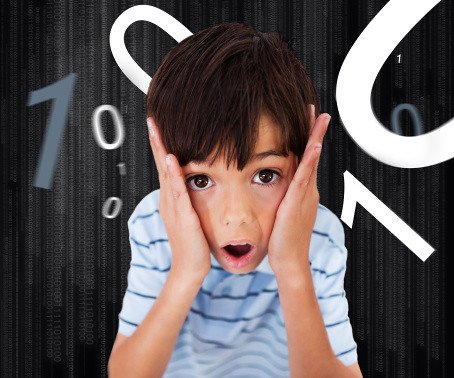The other video that I watched this week for class was titled Hollywood Hates Math. I found this video to be really interesting though I came out of it with more questions than answers. One of those questions was this; are movie's and television's attitudes towards math reflective of larger societal opinions, or are people's opinions about math influenced by how the media presents math? I posted this question in our class forum and the responses I got were very well thought out. One response I got was wondering what the historical trends were like about mathematics to try and find when the dislike for math as a subject of study began. As someone whose field of study was history this interested me greatly. I did a little bit of research into this and found a few interesting ideas. One of which is that the feelings of nervousness or inadequacy about math is such a common thing that it is called Mathematical Anxiety. The historical roots of this anxiety might date all the way back to 19th century schools. According to teachers such as John Taylor Gatto who argues that Western industrialized schooling beginning in the 19th century was designed to create an environment of confusion and intellectual dependence on an expert. I think it's possible that a lot of people's mathematical anxieties can come from the culture of memorization in math classes.
I really enjoyed looking into this topic and hope to challenge my ideas of what teaching mathematics is about .
 |
| wecometolearn. (Sept. 11 2017) Overcoming Math Anxiety [image] |
Well written Michael, I do agree that people's attitudes towards mathematics are highly influenced by their learning experiences and their own comfort level with the subject. In addition, most students are more likely to retain new information when they understand the relevancy of what they are learning in school.
ReplyDeleteI clicked on the link that you shared about "Mathematical Anxiety" and I was fascinated by the connection that this form of anxiety has to math avoidance. I know that I struggled with math anxiety throughout elementary school as I received poor test scores and lagged behind my classmates because I avoided practicing math problems to improve. I am not surprised to read that math anxiety is common among North American students but I am surprised that it dates back to 19th century schools.
Thanks for sharing!